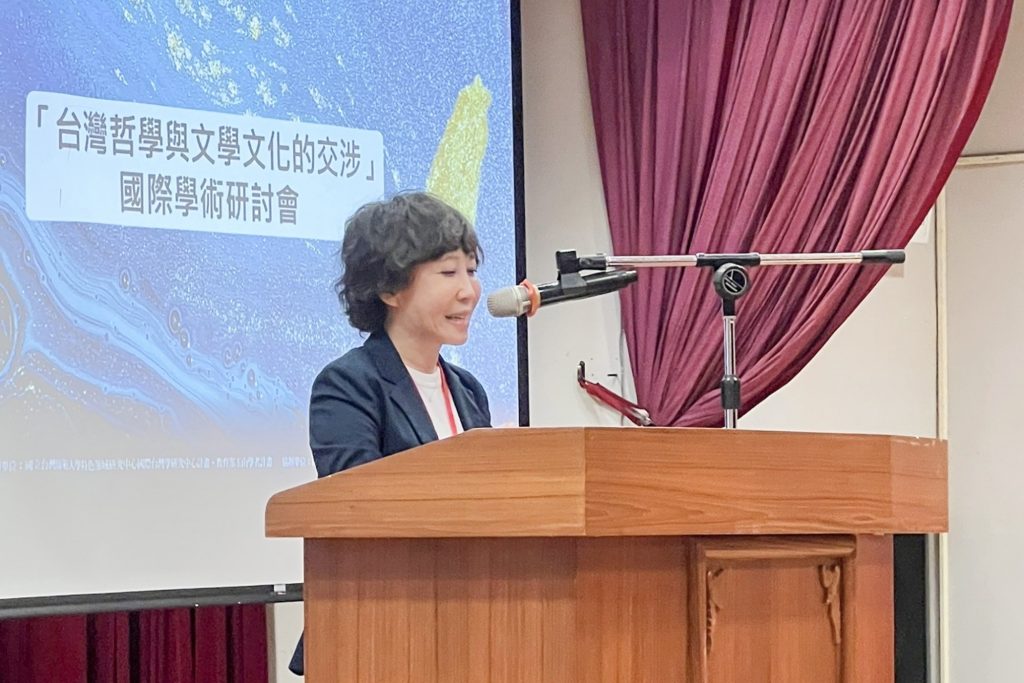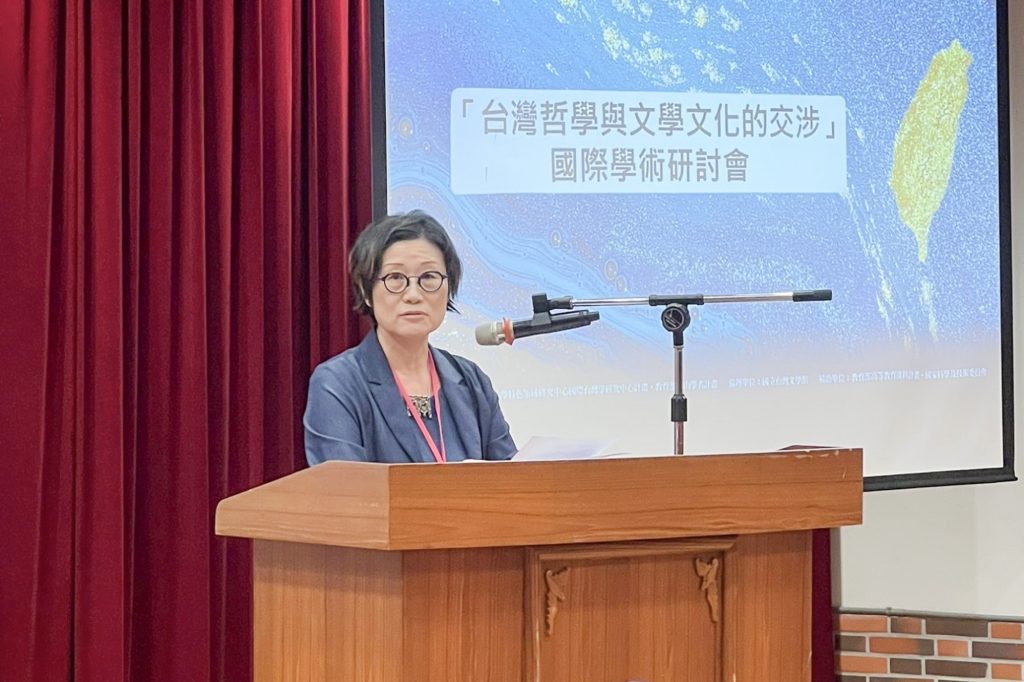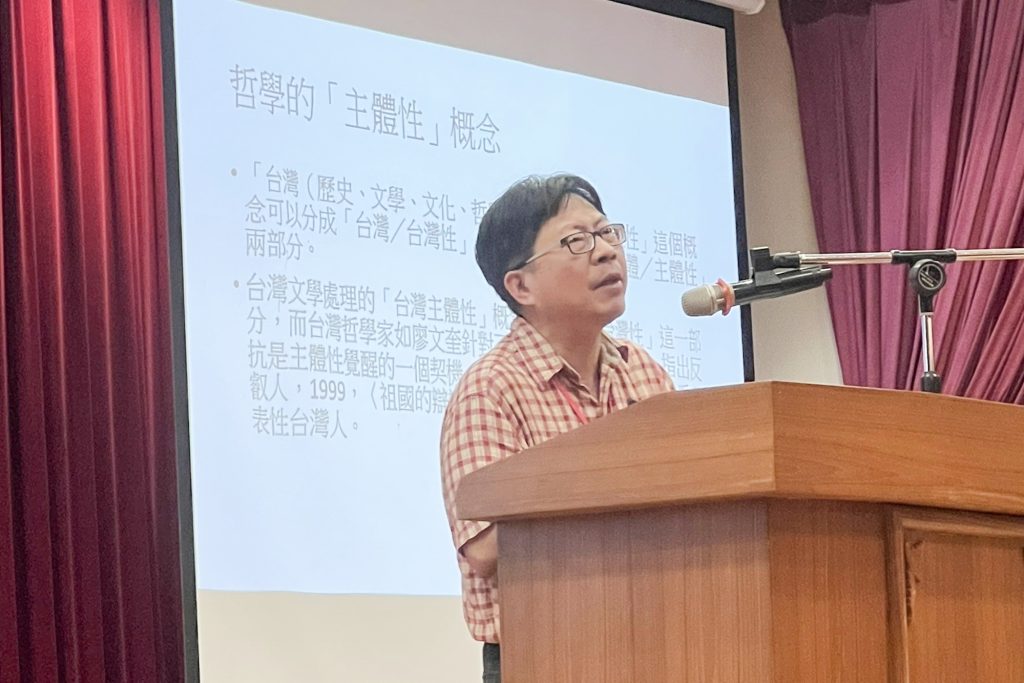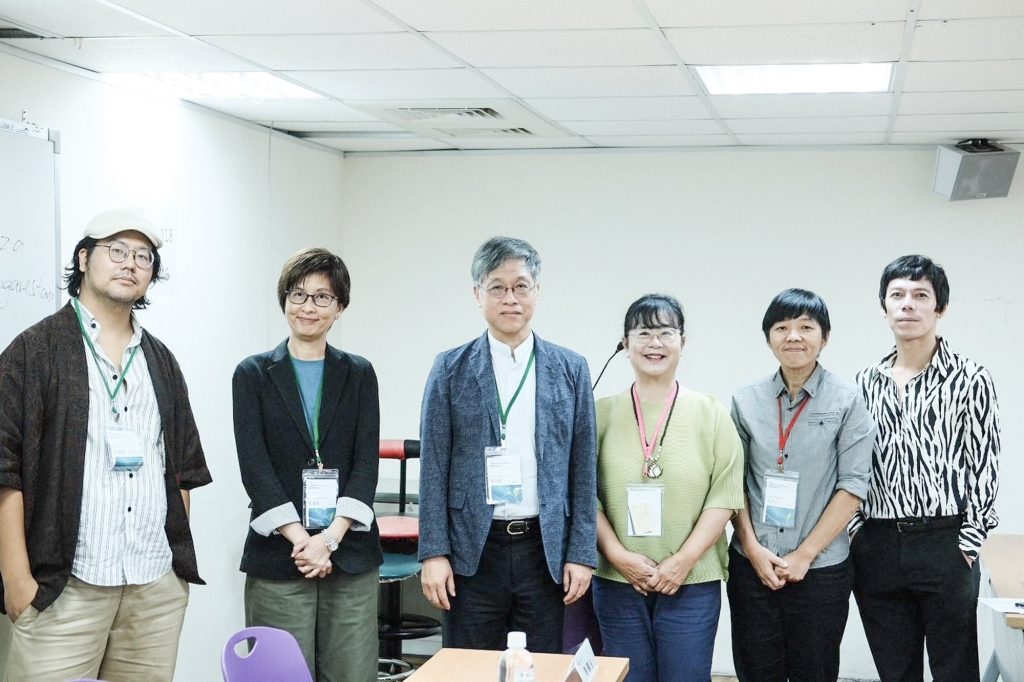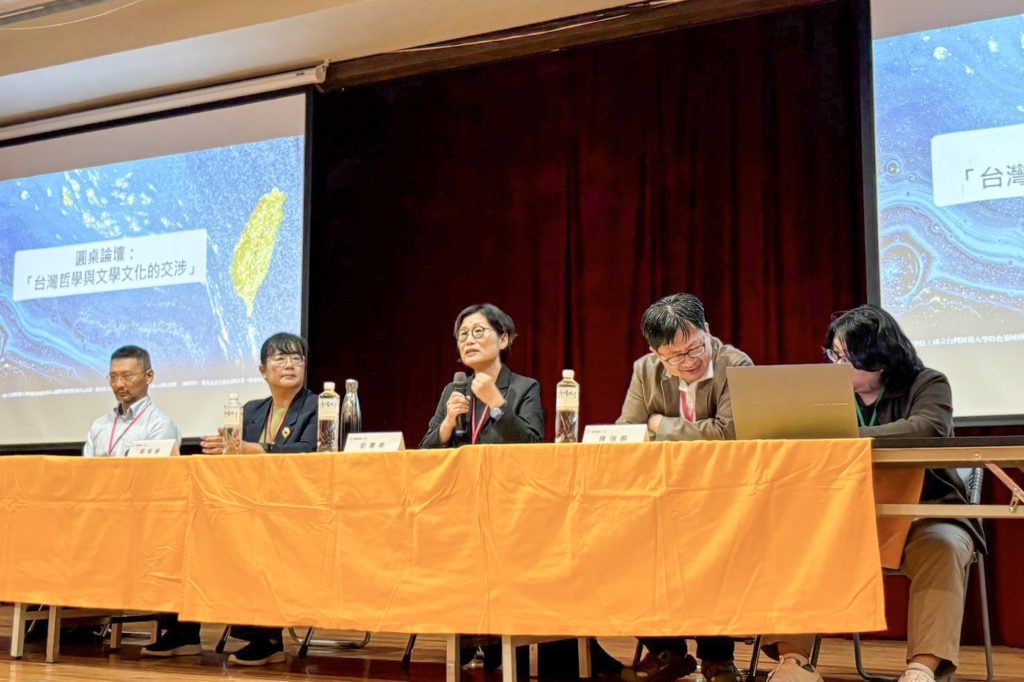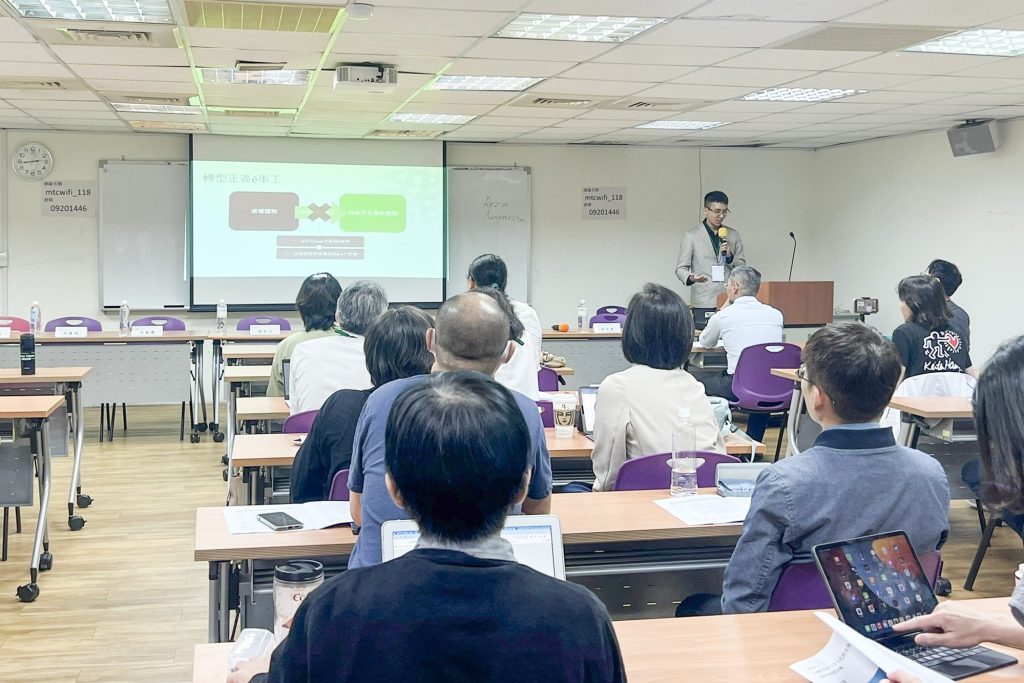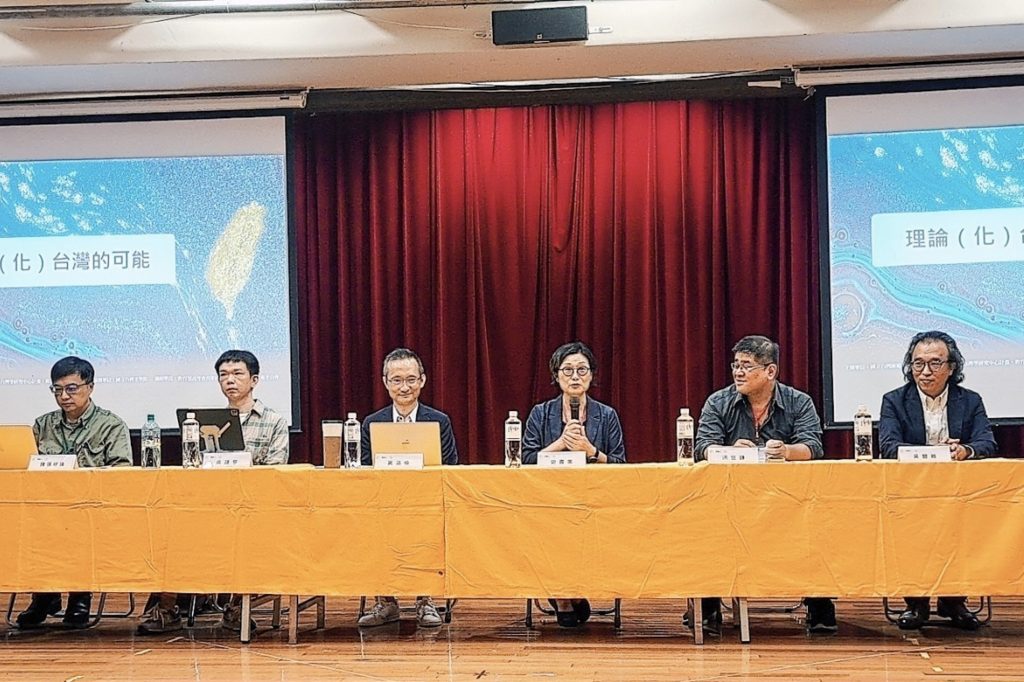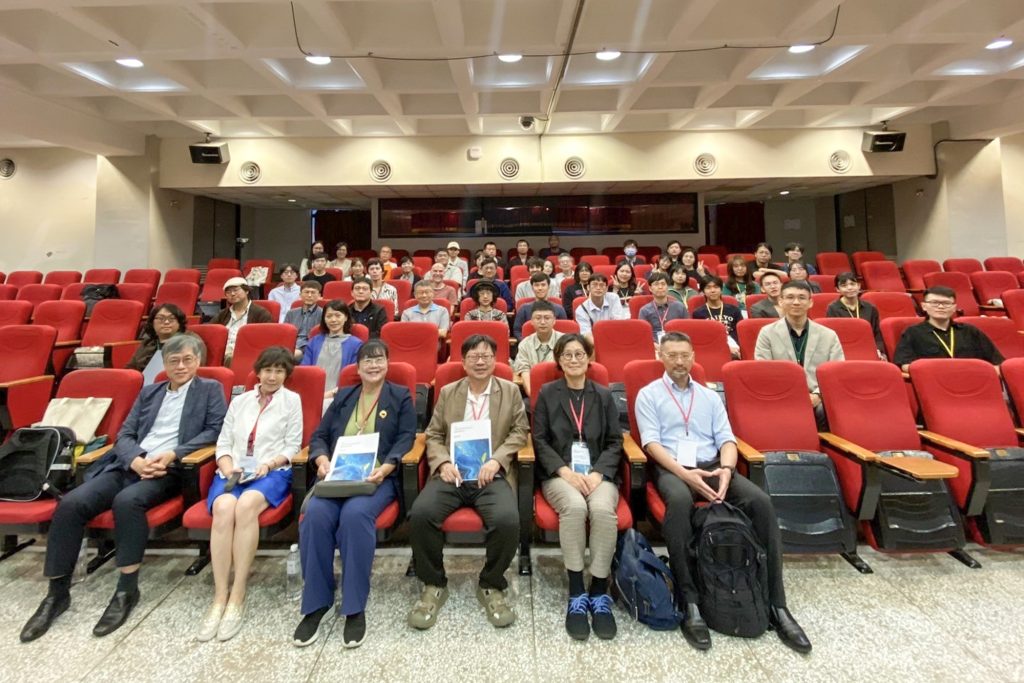Jointly organized by NTNU’s International Taiwan Studies Center and the Ministry of Education’s Yushan Scholars Project, and co-sponsored by the Higher Education SPROUT Project and the National Museum of Taiwan Literature, the international conference “Intersections of Taiwan Philosophy, Literature, and Culture,” was held on October 19th and 20th at National Taiwan Normal University, discussing the intersections of Taiwanese philosophy, literature, and culture, and opening up new horizons and possibilities for Taiwan studies.
This conference brought together about 60 heavyweight authors and critics from within Taiwan and abroad, including Professor Shih Shu-mei (史書美) from NTNU and UCLA, Distinguished Professor Chen Ruey-lin (陳瑞麟) from the Department of Philosophy at National Chung Cheng University, Associate Research Fellow Hung Tzu-wei (洪子偉) from the Institute of European and American Studies at Academia Sinica, and Research Fellow Ming-yeh Tsai Rawnsley (蔡明燁) from SOAS, University of London. Scholars from a wide variety of fields joined in exploring Taiwan philosophy and working together to formulate new research methodologies and frameworks for Taiwan studies.
The organizer, the International Taiwan Studies Center, is dedicated to strengthening research on Taiwan and turning it into a key research area in the international academic community by organizing the resources of scholars inside and outside of the country. The aim of this Center is to coordinate with leading universities outside of Taiwan to build a program of Taiwan studies, both theoretical and practical, with a global perspective, and a focus on sustainable development.
“Intersections of Taiwan Philosophy, Literature, and Culture” was themed around the interactions and interrelated development of Taiwan philosophy, literature, and culture. This was not only a rare platform for cross-disciplinary discussions among the humanities in Taiwan, but also an important step in the promotion of Taiwan studies.
Although Taiwan studies has already become a field of regional academic study around the world, within Taiwan, it does not exist as an independent, specialized field. The study of philosophy in Taiwan, on the other hand, is well-established in notable institutions, alongside a strong foundation in both Chinese and Western philosophy. But aside from work by researchers Hung Tzu-wei and Chen Ruey-lin, the meta-discussion of whether there exists a distinct philosophical system in Taiwan has yet to take place. Hence, by taking Taiwan philosophy as a starting point, this conference provided an opportunity for scholars and experts to not just discuss, explore, and promote Taiwan studies, but also face the key question of the existence of Taiwan philosophy, and how research can establish a systematic academic framework for it.
The impact of the two-day conference was enhanced by not just the first presentation on Indigenous philosophy by scholar Tunkan Tansikian (陳張培倫), but also multifaceted reflections from various fields, including the social and environmental sciences. Drawing on each participant’s academic experience and intellectual background, the keynote speech by Distinguished Professor Chen Ruey-lin and the final round-table discussion between Shih Shu-mei, Chen Ruey-lin, Ming-yeh Tsai Rawnsley, and Hung Tzu-wei illustrated the urgency and importance of establishing the subjectivity of Taiwan philosophy. In their speeches, speakers affirmed the existence of a unique philosophy belonging to Taiwan, and put forward their visions of how, following this important milestone, those who are interested in refining Taiwan’s systems of thought can continue to develop philosophies and theories that are unique to Taiwan.
(Author: Chang Feng-en (張逢恩), NTNU Department of Taiwan Culture, Languages and Literature; Editors: Zhang Shi (張適), Gregory Laslo (樓克己); Proofreader: Hu Shize (胡世澤); Translator: Gregory Laslo (樓克己)
